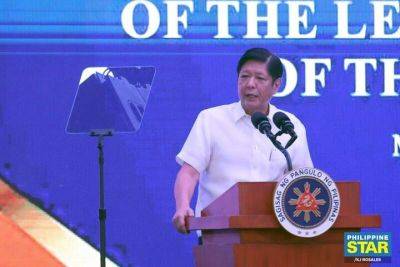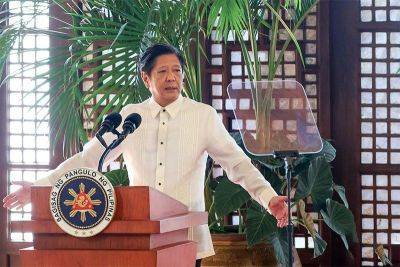Marcos signs 3 key measures into law
MANILA, Philippines — President Marcos has signed into law measures that digitalize passport applications, require schools to allow disadvantaged students to take their exams even without a permit and strengthen the Philippines’ salt industry.
The New Philippine Passport Act; No Permit, No Exam Prohibition Act and the Philippine Salt Industry Development Act were signed into law last March 11.
The New Philippine Passport Act or Republic Act (RA) 11983 repeals the Passport Act of 1996 and mandates the Department of Foreign Affairs (DFA) to establish and maintain an online application portal and electronic one-stop shop readily accessible on its website.
The law authorizes the agency to render offsite and mobile passport services in areas outside of the consular offices and foreign service posts.
It also tasks the DFA to arrange accommodations for the application of regular passports by senior citizens, persons with disabilities, pregnant women, minors aged seven years old and below, solo parents, overseas Filipino workers and individuals with emergency and exceptional cases through the creation of special lanes.
The law also enumerates the requirements for the application and issuance of passports, grounds for the denial of the issuance of, cancelation of and imposition of restrictions on passports and penalties for passport-related offenses.
The No Permit, No Exam Prohibition Act or RA 11984 allows students with unsettled fees to take exams.
The law covers all public and private basic education or K-12 institutions, higher education institutions and technical-vocational institutions.
In the case of technical-vocational institutions, the law only covers long-term courses exceeding one year.
In the case of K-12 students, the mandate shall apply for the entire school year.
The municipal, city and provincial social welfare and development officer or the regional office of the Department of Social Welfare and Development (DSWD) shall issue the necessary certificate on the disadvantaged status of the student due to calamities, emergencies, force majeure and other good or justifiable reasons in accordance with the rules and regulations issued by the agency.
The law







